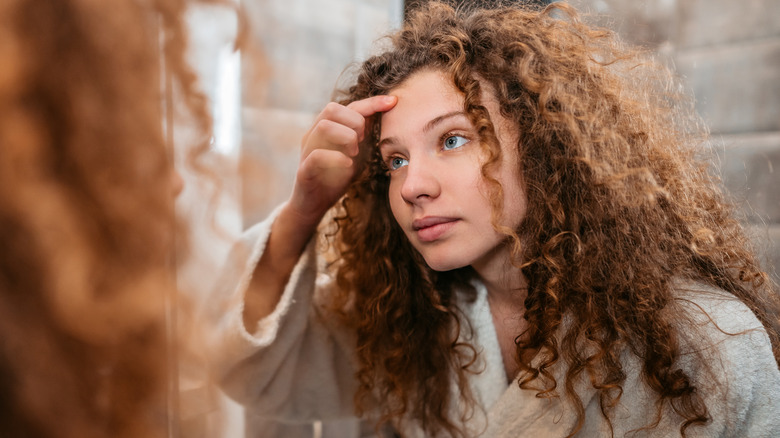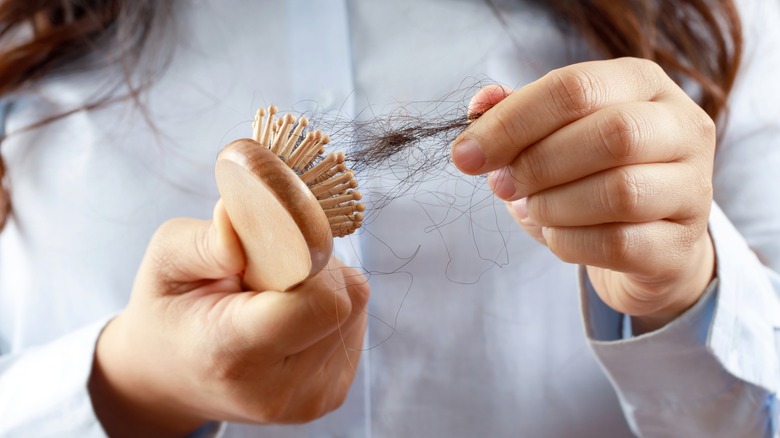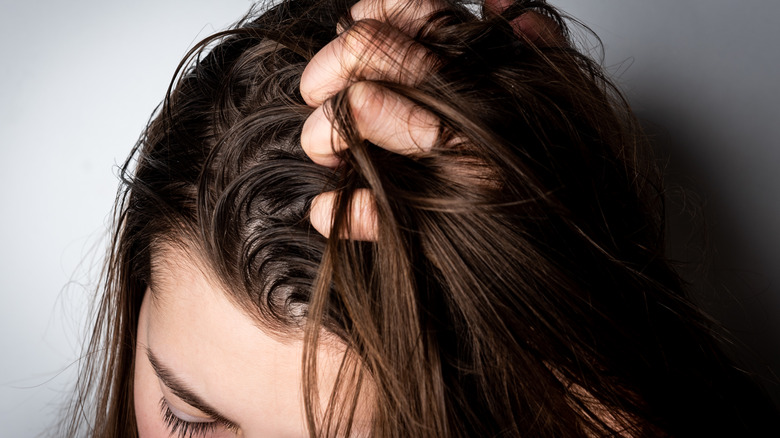Your Menstrual Cycle Is Probably Messing With Your Hair. Here's What To Know
Getting your hair just right can be tricky and often takes a lot of time and patience. Every year, hair styling products fly off the shelves, bringing in billions in revenue and reflecting a large volume of people who are investing in maintaining their mane. However, certain factors can sometimes stand in the way of locking down the perfect tresses every time. For example, stress and the weather can affect the condition of our hair, alongside factors such as the food we eat. However, another culprit can affect your hair: menstruation.
While it may be surprising, your period can affect your hair substantially, affecting how it looks and feels. In some cases, it may even contribute toward excess hair shedding. Below, we'll unpack what you need to know about the potential impacts of your menstrual cycle on your hair.
Your may experience more hair shedding during your cycle
Shedding a certain amount of hair is normal. However, if you often notice an increase around the time you have your period, then your cycle may definitely be playing a role in your hair mishaps. But what causes it? Speaking to LOLA, dermatologist Dr. Tsippora Shainhouse explained: "Some women may have hair follicles that are particularly sensitive to hormone fluctuations, and may notice that they have increased hair shedding in the second half of their menstrual cycle." While the shedding may be alarming, it shouldn't be an immediate cause for concern. If you're concerned your hair loss isn't normal or often occurs during other times of the month, you can always seek professional advice. Airing your concerns should help to put your mind at ease about the situation. After all, stress can impact your hair too.
However, excess hair shedding isn't the only impact your menstrual cycle can have on your hair. In fact, you may find the following impact is often more noticeable.
Your hair might be greasier, too
Styling your hair can be a challenge in itself, but throw grease into the mix, and you're in for a lot more frustration. Speaking to Glamour, trichologist Helen Reavey explained that "fluctuating hormones can cause an imbalance of oil on the scalp. This hormonal change can stimulate the sebaceous glands in the skin to produce more oil. Mixed with product buildup, sweat, and dirt, this can contribute to greasy hair." This explains why you may see changes during particular parts of your cycle. So, if you're feeling frustrated at your hair, this likely explains your woes.
This change usually happens around seven days before your period is due, so if you're looking to combat greasy hair, plan ahead and keep an eye out. Thankfully, it won't last forever, and your hair should eventually return to its original state. While these changes may seem difficult to deal with, knowing what time of the month your hair goes through these transitions can help you to adapt your hair care routine and make it easier to manage. If you want to ensure that your tresses always look their best, you should also make sure to protect your hair from the sun.


